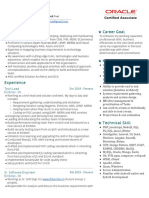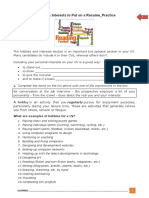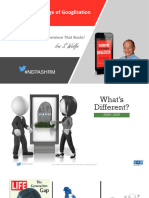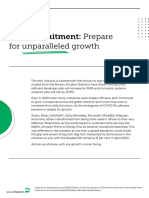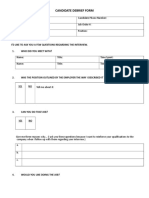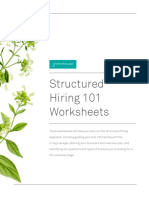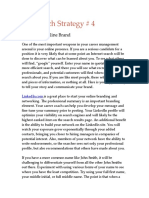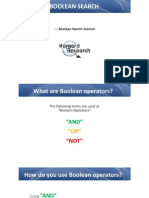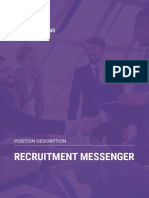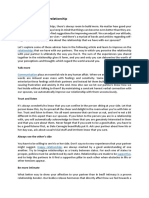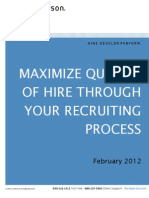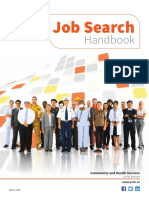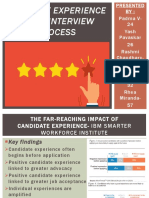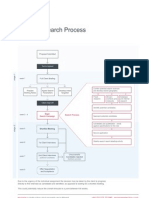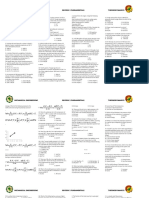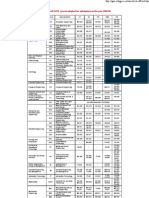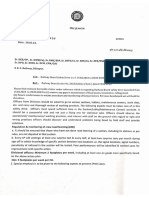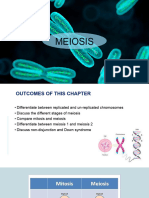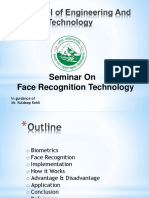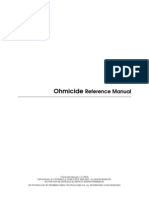Customer Obsession
o Reference point: Citadel is a different type of business compared to a FAANG company. So, while they
do not have 4 million product users, and are not judged on DAU’s, or click rates; they do have Customers
which are very important people. The customers usually will be very talented mathematicians,
researchers, and senior stakeholders in the business that are making oftentimes billion-dollar decisions
based off the technology that you build. So obviously it is incredibly important to understand the
customer requirements and what the end users are looking for.
Questions: Tell me about a time when you went above and beyond the call of duty for a customer. Why did you take the
action you did? What was the outcome?
Commercial Mindset
o Reference point: Citadel wants people that understand the business, and how their work will impact
the broader business. Obviously you don’t need to know finance to understand how your project or
application can impact the broader business – and that is something that they really value as you are not
just a COG in the machine.
Questions: Tell me how your current or previous project delivered commercial value for the organization? How do you
measure it?
Collaboration
o Reference Point: Citadel by nature is a collaborative business. They use a lot of shared resources and
most of their systems are enterprise wide – rather than silo’d off. Collaboration is huge for them
because they like to make decisions quickly and iterate quickly – so they try to avoid bottlenecks of long
process chains and bureaucracy. Citadel loves passionate developers but are not looking for code
monkeys by any means.
Questions: Provide an example of a time when you have had to make a difficult decision under pressure and then defend
and justify it.
Integrity/Self Awareness
o Reference Point: Citadel is looking for people who understand their skills, strengths, and weaknesses
so that they can best align them to the right business units. This is part of the culture as well as their
new team matching and interview process – as they are looking to optimize the hiring process and make
sure that they have the right people working on the right projects in the right teams.
Questions: What do you enjoy most about your current / previous role? What do you least enjoy or perhaps find
frustrating about your current / previous role?
Adaptability
o Reference Point: Given the financial markets change so often, Citadel is looking for people who can
adapt on the fly and solve problems in real time. That is part of the allure of the business.
Questions: Provide an example of a time where you had various projects on your plate, and you had to prioritize one
over the other.
Resourceful/Scrappiness
o Reference Point: Citadel likes to have practical solutions to problems. You are never building
technology just to build it and often you must get creative.
Questions: Give me an example of a calculated risk that you have taken where speed was critical. What was the
situation and how did you handle it?
�Ownership
o Reference Point: Citadel wants candidates who have built projects from the ground up and have lead
initiatives, not just people who have been contributors.
Questions: Tell me of a time when you took on work outside of your comfort area and found it rewarding?
Other Behavioral questions to think about below:
What has been your biggest accomplishment/biggest failure?
Where do you see your career going? Do you want to move into management or stay on an individual contributor path?
Why are you interested in Citadel?
What drew your interest to finance?
Why are you leaving you current company?
What are the (3) three most important criterion for you to make a job switch?
Where do you see yourself in 5 years?
What motivates you?
What do you think will be the biggest challenge moving from your current job to Citadel?
What will be your approach to being successful at Citadel?
What is your ideal role and what problems are you trying to solve?
How do you rank the other opportunities you are interviewing with; What are the roles and technology stacks?
What are you looking for in the next role that you’re not getting from your current company?




